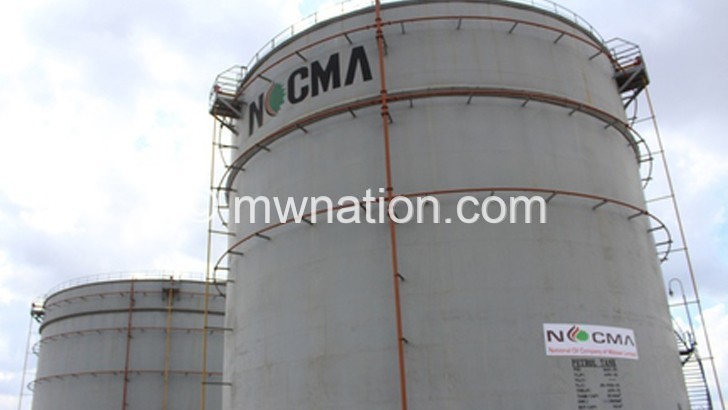
Minister of Energy Newton Kambala says government wants to increase the country’s strategic fuel reserves from 60 days to 180 days in the next five years to ensure security of fuel supply.
Speaking after touring National Oil Company of Malawi (Nocma) strategic fuel reserves at Matindi in Blantyre on Friday, the minister said fuel plays a critical role in the economy; hence, the current reserves are not sustainable in case of eventualities.

He said: “I am not comfortable to see that we are having reserves of about 60 days of fuel. We need to increase our fuel capacity.
“It [increasing fuel capacity] will require huge investments, but we need to have that kind of ambition. One of these days we may have problems to move fuel from the ports and 60 days is too short a period.”
The fuel reserves in Lilongwe, Blantyre and Mzuzu have a combined storage capacity of 60 million litres, representing two months (60 days) of fuel cover at the current estimated daily consumption levels.
The reserves were constructed with a $26 million (about K20 billion) loan from Exim Bank of India. The idea to build the reserves was conceived at a time the country witnessed one of the worst fuel shortages between 2010 and 2012.
The reserves are critical to landlocked Malawi as they ensure security of fuel supply particularly in times of shortages.
In an interview, Nocma spokesperson Telephorus Chigwenembe said currently, the country has more than 25 million litres of fuel in its strategic fuel reserves with more trucks are offloading the commodity.
He said Nocma will be engaging consultants on the plan for additional fuel reserves and that by next year, the actual work could start.
Said Chigwenembe: “The progress is likely to be slow with the Covid-19 pandemic. But we will be expanding the capacity of every depot two times its volume.”
This means that the Blantyre and Lilongwe fuel reserves will each increase its capacity from 25 million litres to 50 million while Mzuzu reserve will double to 20 million litres from the current 10 million litres.
Southern African Development Community regulations require their member States to have 90 million litres of fuel reserve capacity.
Last week, Malawi Energy Regulatory Authority chief executive officer Collins Magalasi said Malawi is sitting on nine financial instruments worth $117 million (about K90 billion) supporting the importation of fuel this year.
Of the nine facilities, eight are being supported by local commercial banks while one is being discussed and finalised with African Export-Import Bank based in Cairo, Egypt.
Magalasi said the country’s fuel imports this year are being supported by Ecobank’s $15 million (about K11 billion) Syndicated Facility, National Bank of Malawi’s $15 million Standby Guarantee Facility, Standard Bank’s $15 million Revolving Facility, First Capital Bank’s $10 million (about K7.4 billion) facility, FDH Bank’s $5 million (about K3.7 billion) Revolving Facility, CDH Investment Bank’s $5 million facility, NBS Bank’s $5 million facility and Nedbank’s $2 million (about K1.7 billion) facility.
The Nation_July 21, 2020_Grace Phiri-News Analyst
